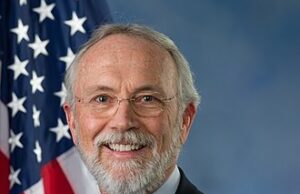Appropriations subcommittee hearing discusses HUD programs and questions costs
by Rebekah King, National Housing Conference
Washington, DC – March 26, 2015 – (RealEstateRama) — On March 24, HUD Secretary Julian Castro testified a second time before the House Appropriations Transportation and Housing and Urban Development subcommittee on the president’s FY 2016 HUD budget request. Chairman Diaz-Balart (R-Fl.) dispensed with opening statements so that members could dive into questions. Most of the chairman’s questions focused on compliance and cost, foreshadowing the strong justification HUD will need to provide to move the proposed program changes and funding increases in the president’s budget forward.
The other members discussed a range of HUD programs and issues with Secretary Castro, focusing on the request to restore housing vouchers, create targeted vouchers, address public housing capital needs and sustain homeless assistance grants.
Targeted vouchers
Rep. Mike Quigley (D-Ill.) asked about the proposed new targeted vouchers in the FY 2016 HUD budget. This voucher proposal would restore the remaining vouchers lost to sequestration.
- 4,900 vouchers would serve survivors of domestic violence.
- 2,600 would be Family Unification vouchers; these would also allow youth aging out of foster care to use these vouchers for five years, instead of 18 months. These vouchers will be allocated through a competitive process.
- 22,500 vouchers would serve the homeless, including families and veterans; veterans could access these vouchers even if they did not receive an honorable discharge. These vouchers will be allocated through a competitive process.
- 37,000 vouchers will be need-based and allocated based on a formula set by PD&R.
Public housing capital needs
Ranking Member David Price (D-N.C.) expressed great concern about the tremendous backlog of capital needs in public housing. He described current levels of PHA capital funding as insufficient and identified the Choice Neighborhoods program and the Rental Assistance Demonstration (RAD) as the only current options for addressing those capital needs. Choice Neighborhoods provides a comprehensive development approach and leverages private capital, but even with the proposed $250 million for FY 2016, only 6-10 implementation grants can be funded. RAD provides an opportunity to improve public housing stock and successfully leverages private dollars at a 1:19 ratio, based on an evaluation of the first 60,000 units approved for conversion. While these programs have proven to be effective, they are unable to meet all of the public housing capital needs, leaving a problem that still needs to be solved.
Homeless assistance grants
Rep. David Joyce (R-Ohio) expressed concern about the sustainability of homeless assistance grant renewals and the importance of ensuring that lower performing projects are not renewed. Secretary Castro discussed how HUD is working to measure outcomes and implement metrics across programs, to ensure they are as effective as possible. Members also discussed the progress made toward ending homelessness, with veterans homelessness down to 49,000 based on the 2014 Point in Time Count.













